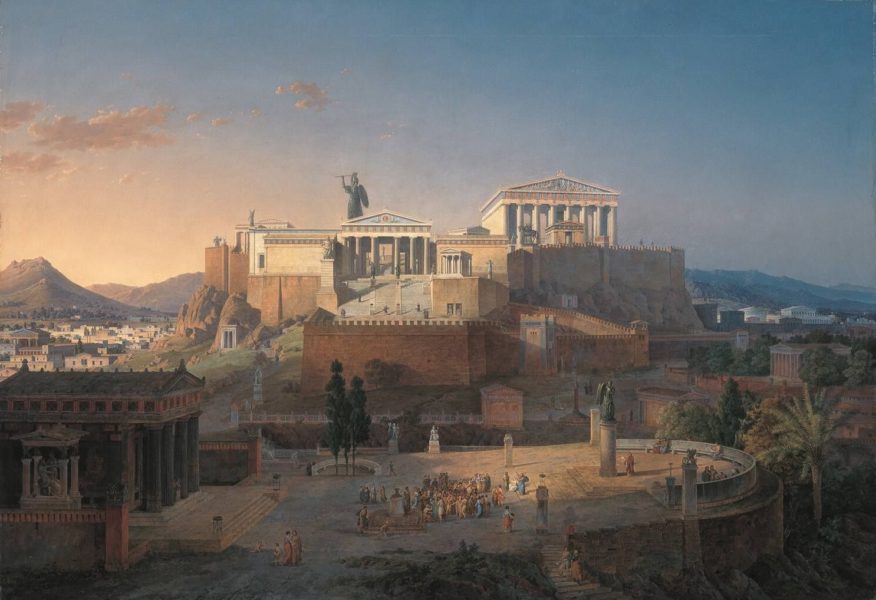Democracy means “rule by the people.” We call our system of government democracy, but we are not ruled by the people. We are ruled by politicians.
Every few years there is an election campaign, and we attempt to select the best of a small number of choices, and — if we’re not too jaded to bother — we mark an “x” on a piece of paper and drop it into a box.
The input bandwidth of our national democracies is approximately one bit every two years. After 16 years of civic engagement, then, our input amounts to one byte: about enough data to contain a single character of the English alphabet. This is what we know as democracy. The ancient Greeks (who invented the term) might be surprised at our misuse of their language.
Two or three centuries ago, when our current political systems were designed, newspapers were the cutting edge of information technology. Low bandwidth democracy may have been the best available, and representative democracy was the result.
In theory, representative democracy means that a politician represents his or her constituents in government; in practice, it can seem to mean that she or he represents a political party to constituents at election time. Once elected, there is generally no requirement for the “representative” to represent the will of the constituents at all.
The technical constraints that democracy operated under two centuries ago are gone. Today, it is very easy to measure the opinions of a population. It is done routinely for market research, and even by political parties to better sell themselves to voters. But what if polling were not just a tool for political and commercial marketing? What if it was a condition of elected office that a clear majority opinion among constituents must be truthfully represented in government?
It would be possible to implement such a veridical representative democracy, but there is a step missing: who is going to implement it? Power is rarely relinquished voluntarily.
It is an age-old dilemma, but in this case there is a loophole. In countries such as Canada, directly representative democracy could be put to the test without first changing anything about the system of government. What if one courageous and imaginative candidate promised constituents that once elected, their voice — the opinion of the majority of the constituents — would guide the representative’s actions in the assembly? A single candidate could provide an example that could radically reform the way we are governed.
Would such a candidate be elected? And if elected, would they be capable of implementing the promise of real democracy? I don’t know. I do know that the our ancient machinery of governance is overdue for an update.
The problems facing our societies are not being effectively solved by our current political arrangements. We could pin this trend on any number of contributing causes — a dumbed-down electorate, the media, lack of apparently meaningful alternative candidates, complacency of a society that’s never had to fight for its freedom, the influence of money, laziness. But, identifying mutually reinforcing causes is not a solution.
Real democracy could be. If citizens’ opinions really mattered, there would be reason for them to become informed about issues that affect their lives. The intelligence of a society could be brought to bear on the questions that are important to its future in a way that no individual politician or political party, whose ability to act wisely is hampered by a tangled web of political obligations, could arrange.
Civilizations live and die by how well they are governed. The acceleration brought about by exponential technological change and its unintended consequences places a heavy burden on the abilities of society to make well-informed, timely, and far-sighted decisions. Climate change, environmental degradation, inequality, financial instability, and resource depletion demand wise governance if our societies are to survive or prosper.
If there is a better way to make the decisions that will shape the fate of civilization on this perilously fragile planet, we must find it.
Democracy? Let’s give it a try.
